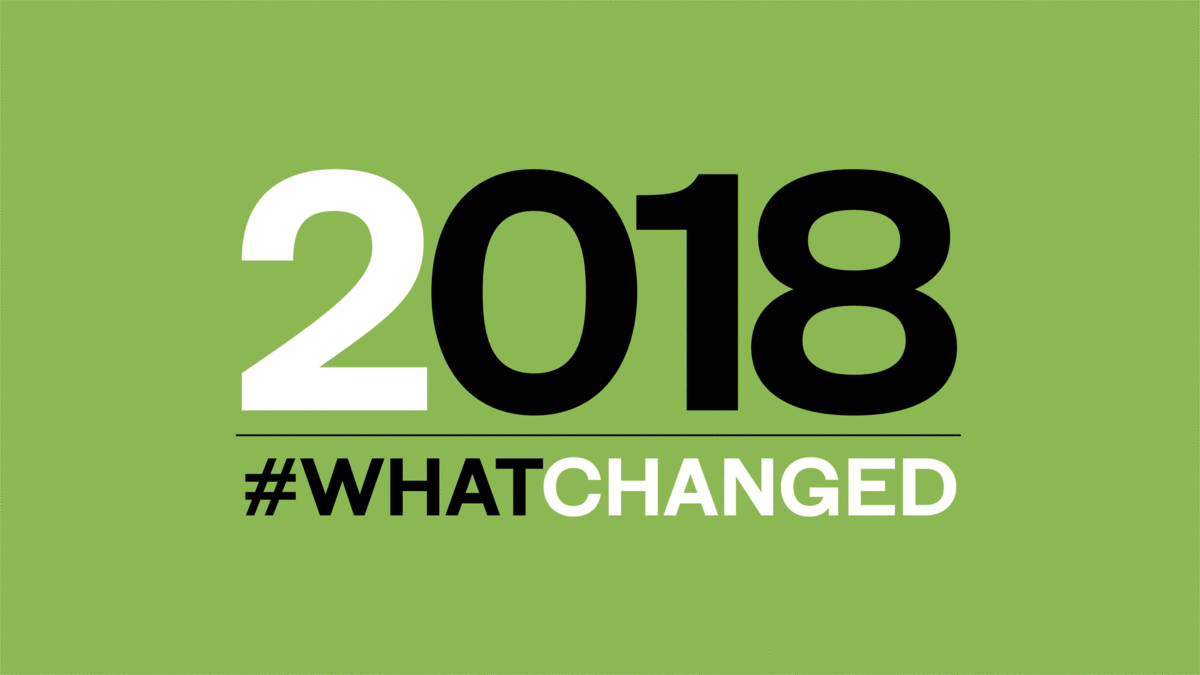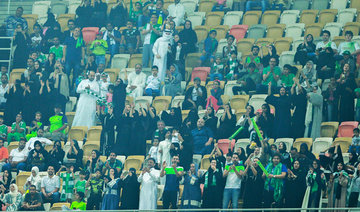DUBAI: Undoubtedly, 2018 has been a landmark year for Saudi Arabia — but even more so for women in the Kingdom, who have had a momentous 12 months enjoying newly acquired freedoms and being at the forefront of change under reforms led by Crown Prince Mohammed bin Salman.
From getting behind the steering wheel, to being the driving force in prominent international, governmental and business roles, women are welcoming landmark social change.
As the Kingdom makes giant strides toward gender equality and female empowerment, international experts say progressive moves granting women greater rights seen in 2018 have barely scratched the surface as they outline how women in Saudi Arabia will help drive the country forwards.
“2018 has indeed been a year of firsts for women in Saudi Arabia, in terms of some very specific reforms,” said Emily Hawthorne, regional analyst for Stratfor, a geopolitical intelligence platform. “Most notable have been youth-focused reforms, such as loosening tight restrictions on driver’s licenses as well as allowing men and women to attend music concerts.”
With the ending of the world’s only ban on women drivers on June 24, several driving schools for women opened in Riyadh and Jeddah. Consultancy firm PricewaterhouseCoopers predicted that about three million women in Saudi Arabia could be driving by 2020. The move is expected to boost women’s employment and, according to a Bloomberg estimate, add $90 billion to economic output by 2030.
Kent Davis-Packard, practicum director at the SAIS Women Lead (SWL) initiative, a global women’s leadership development program, said: “Saudi women have made phenomenal progress, and not just because of the recent reforms. It was the work of Saudi women over the past decades that sufficiently transformed the national consciousness of the country to be ripe for the changes made by its current leadership.”
A year of milestones for women in the Kingdom began only a few days into 2018. On January 12 Saudi women were allowed, for the first time, to enter a sports stadium in designated seating areas to watch a local soccer match. The government has announced plans to open up more women-friendly facilities at stadiums around the country.
Fast forward two months and Saudi Arabia’s military began taking applications from women for the first time. Later in the year a flight school in the Kingdom announced it would start admitting female students. Oxford Aviation Academy received hundreds of applications from women hoping to start lessons that could open the way to previously unavailable career options. Increasing the number of Saudi women in the workforce is part of the Vision 2030 reforms, which seek to raise women’s participation in the workforce from 22 percent to 30 percent.

In King Salman’s annual address to the consultative Shoura Council, which comprises 150 members, including 30 women, a key theme was empowering females in the Kingdom to play an even bigger role across Saudi Arabia.
In another notable step King Salman appointed four women to important roles: Tamadur bint Youssef Al-Ramah became the first woman to be appointed deputy labor minister in conjunction with a major military and political reshuffle, while Professor Kawther bint Mousa Al-Arbash and Dr. Ghada Bint Ghunaim Al-Ghunaim were appointed as members of the Board of Trustees of the King Abdulaziz Center for National Dialogue. Iman Al-Mutairi was also appointed as assistant to the Minister of Commerce.
Women have also been appointed to prominent municipal and international positions in 2018. Jeddah Mayor Saleh Al-Turki appointed four women to key positions in the municipality, while on the world stage Dr. Samar Al-Homoud, a Saudi consultant colorectal surgeon at King Faisal Specialist Hospital and Research Center, was appointed by the International Agency for Research on Cancer (IARC) of the World Health Organization (WHO) as chair of its ethics committee — the first member from the Middle East region to hold this position — and Dr. Sumaya Al Nasser was appointed as the first Saudi ambassador for Peace Without Borders.
Saudi Arabia also took a major step towards welcoming more women into the workforce by hosting its first business forum for women in March. The Women in Leadership Economic Forum, called “Let’s Talk About Tomorrow,” showcased the Kingdom’s top female business leaders and demonstrate the important role of women in driving the future of its economy.
Women can now also open their own businesses without a guardian’s permission. Saudi Arabia’s Ministry of Commerce and Investment said in February that women would be able to “start their own business freely.”
Davis-Packard said that by allowing women in Saudi Arabia to shine Crown Prince Mohammed bin Salman will take the country into “the free, dynamic, spiritual, prosperous state it has all the potential to become.”
He added: “Women also contribute to addressing one of the biggest political and security challenges of the Middle East today: the Islamist — secular divide.
“Women tend to not be driven by power and loyalty to dogma, but rather are mission-oriented and support general movements for social progress. By empowering more women, you bridge the social divisions, and you end up with a force to be reckoned with.”
Arab News is also playing its part in gender equality, by vowing to become the first to 50-50 gender-balanced newsroom in the Kingdom by 2020. The announcement was made at the opening of the inaugural Arab Women Forum at King Abdullah Economic City (KAEC). It will involve active recruitment, training and career guidance with the help of its publisher, the Saudi Research and Marketing Group.
Hawthorne said women in the wider Middle East are “a catalyst for change in their families, workplaces and societies when given the means and space to act.”
She continued: “When women are given opportunities, they find ways to multiply the benefits for their communities. Saudi Arabia’s vision 2030 simply cannot succeed without the inclusion of women into the Saudi workforce. The economic benefit for the country of greater inclusion of women into the economy is a driver behind the drafting of the ambitious vision plan in the first place.”
The year 2018 has seen a litany of other female-led achievements, such an all-female Saudi Arabian team winning the Guinness World Record-breaking Hajj Hackathon, and Saudi racing driver Reema Al-Juffali becoming the first woman in the Kingdom to race in a championship, finishing second and third in the silver category of the TRD 86 Cup’s season-opener at the UAE’s Yas Marina Circuit.
Women have also been enjoying greater social freedom than ever before. In April, Saudi Arabia for the first time allowed a mixed-gendered concert to take place.
As Saudi businesswoman and activist Muna AbuSulayman said: “People are still grappling with this changing Saudi Arabia and you still see some of the old stereotypes being bandied about, but they simply no longer hold true. In the past 10 years, women in Saudi Arabia have pushed for and succeeded in implementing major reforms. Saudi women can lead. This is the key to the realization of the Saudi Vision 2030 and Nation al Transformation Program.”

























